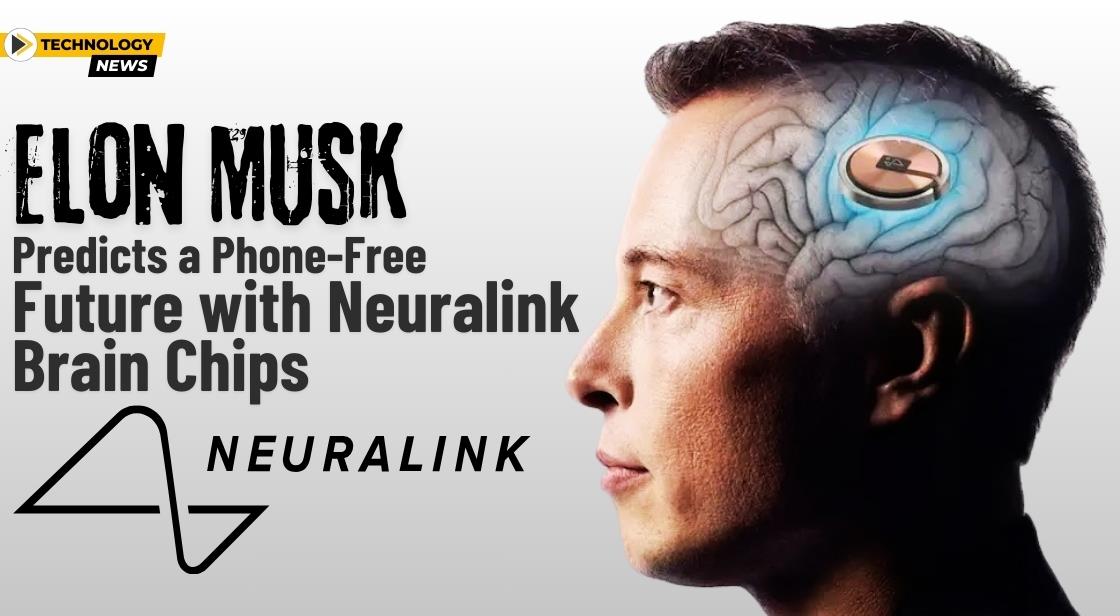Elon Musk Predicts a Phone-Free Future with Neuralink Brain Chips

News Synopsis
Tech billionaire Elon Musk has envisioned a future where Neuralink's brain chips will render phones obsolete. In response to a post on X, formerly Twitter, Musk remarked, "In the future, there will be no phones, just Neuralinks." As the CEO of Neuralink, Musk is at the forefront of developing this groundbreaking brain chip technology.
Neuralink's Initial Human Trials
Neuralink has already begun its initial human trials, with 29-year-old Noland Arbaugh being the first participant. Arbaugh's involvement marks a significant milestone in the development of Neuralink's brain implants, aiming to revolutionize how we interact with technology.
Musk's Reply to AI-Generated Image
Musk's post was a reply to an AI-generated image created by @iamnot_elon, depicting Musk holding a phone with a neural network design on his forehead.
The image was captioned, "Would you install a Neuralink interface in your brain to control your new X phone by thought?" Musk responded, "In the future, there will be no phones, just Neuralinks," highlighting his belief in the transformative potential of Neuralink.
Challenges in Neuralink Trials
Despite the ambitious vision, the journey has not been without challenges. Arbaugh, the first human to receive a Neuralink brain implant, experienced a malfunction with the device.
According to a source "cried a little bit" upon discovering the issue several weeks after the implantation in January. He observed a delay between his thoughts and the movement of the computer cursor, indicating that the device's wires, or "threads," had detached from his brain.
Arbaugh's Experience
Arbaugh recounted to Bloomberg, "At first, they didn't know how serious it would be or a ton about it. It was really hard to hear. I thought I'd gotten to use it for maybe a month, and then my journey was coming to an end." This incident underscores the challenges and uncertainties in pioneering such advanced neurotechnology.
Call for Second Participant
Undeterred, Musk's Neuralink is now seeking a second participant for its clinical trials. This individual will also use the brain chip to control their computer and phone with their mind.
Musk made the announcement on X, stating, "Neuralink is accepting applications for the second participant. Our Telepathy cybernetic brain implant enables you to control your phone and computer just by thinking."
Broader Implications
The implications of Neuralink's technology extend far beyond making phones obsolete. If successful, this innovation could revolutionize how humans interact with technology, offering unprecedented control and connectivity.
The journey is fraught with technical and ethical challenges, but the potential rewards are immense, promising to reshape our digital lives.
Conclusion
Elon Musk's vision for a future dominated by Neuralink brain chips is both bold and transformative. While the initial trials have encountered hurdles, the pursuit of this technology continues with optimism and determination.
The transition from traditional smartphones to brain-controlled interfaces represents a significant leap forward, potentially changing the way we live and interact with technology. As Neuralink progresses, the world watches with anticipation, eager to see how this futuristic vision will unfold.
You May Like









